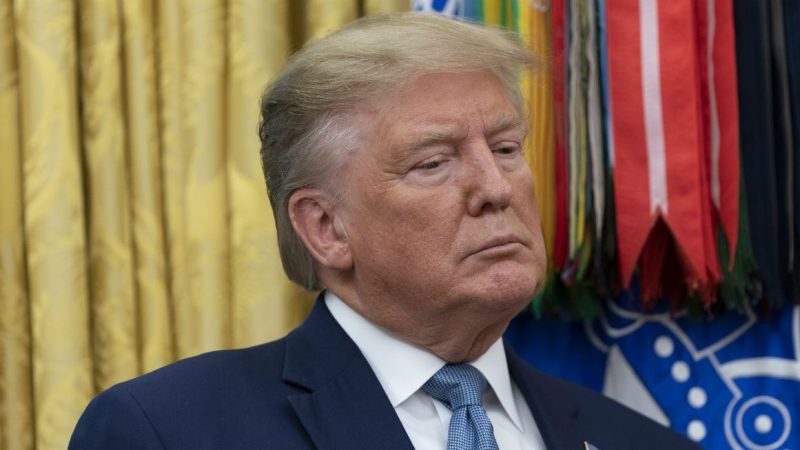Trump: 'If It Weren't for Me, Thousands of People Would Have Been Killed in Hong Kong'
The president takes credit for the fact that Beijing hasn't sent tanks into Hong Kong.

Today, on a 53-minute televised phone call with Fox & Friends, President Donald Trump tried to take all the credit for the fact that the Tiananmen Square massacre has not repeated itself in Hong Kong.
"If it weren't for me, thousands of people would have been killed in Hong Kong right now, and you wouldn't have any riots, you'd have a police state," said Trump.
"The only reason [Chinese President Xi Jinping is] not going in is because I'm saying it's going to affect our trade deal and you don't want to do that."
He also attempted to strike a middle ground, saying, "We have to stand with Hong Kong but we also have to stand with President Xi. He's a friend of mine, he's an incredible guy…but I'd like to see them work it out."
Glowing praise for authoritarians is par for the course for Trump, but it's odd that he's attempting to strike a middle ground of supporting Hong Kong protesters and supporting Xi, whose government has disappeared Hong Kong booksellers and detained consulate personnel on false pretenses as a form of intimidation. Not to mention the Chinese government's egregious tendency to crack down on garden-variety political speech in all kinds of cruel ways, or its surveillance and internment of the Uighurs in Xinjiang.
Earlier in the call, Trump noted, "I stand with Hong Kong, I stand with freedom…but we're also in the process of making the largest trade deal in history and if we can do that, that would be great. China wants it, we want it."
It's incredible that in the same comment, Trump says that Xi is his friend and an incredible guy, but also one who would've massacred protesters in Hong Kong. https://t.co/KviXVn5KTT
— Sarah McLaughlin (@sarahemclaugh) November 22, 2019
Trump's remarks were a response to legislation supporting the protesters in Hong Kong. The bill has passed both the House and the Senate and is now heading to Trump's desk. The president, who has 10 days to sign the legislation (not counting when Congress is adjourned for Thanksgiving), has stated that he might veto it due to concern that it could threaten his ongoing trade talks with China.
The protests, now in their sixth month, initially centered around a now-revoked extradition bill proposed by Chief Executive Carrie Lam. The legislation would have allowed Hongkongers to be extradited to Taiwan and mainland China, where the criminal justice system is arbitrary and harsh—far from the due process Hongkongers expect.
Though Hong Kong is technically part of China, the territory has operated under a "one country, two systems" since 1997. This guarantees its citizens free speech, a free press, and the ability to elect many of their representatives—freedoms mainland Chinese citizens are not granted. The policy is set to remain in place until 2047, at which point the city will become fully Chinese. Hongkongers are not only just fearful that China is prematurely encroaching on their rights; they're responding to the brutality protesters have received at the hands of the police. As the situation continues to escalate, more and more people are caught in the violent crosshairs.
More on Hongkongers' demands here:


Show Comments (83)